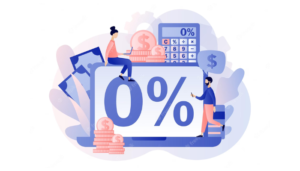Car financing is an essential part of buying a car for many people, especially when you don’t have the cash to pay for the car upfront. Whether you’re eyeing a new or used vehicle, understanding your financing options can save you a lot of money and stress in the long run.
Finding the right car financing deal can be tricky, but knowing the different types of loans and what to look for can help you make an informed decision. From lower interest rates to flexible repayment terms, the right loan can make a huge difference to your monthly budget.
If you’re ready to learn how to choose the best car financing option for your needs, keep reading. We’ll walk you through everything you need to know to make a smart, confident choice.
What is Car Financing?
Car financing is essentially borrowing money to purchase a car. It involves taking out a loan, which is typically repaid in monthly installments over a set period of time. In South Africa, there are various ways to finance a car, including traditional bank loans, dealership financing, and personal loans.
Choosing the right option depends on your financial situation, your credit score, and the type of car you wish to purchase.
Types of Car Financing in South Africa
Understanding the different types of car financing available is essential to make an informed decision. Below are the most common types of loans you’ll encounter:
1. Bank Car Loans
A bank loan is one of the most traditional ways to finance a car in South Africa. These loans generally offer competitive interest rates, and you can either secure the loan against the vehicle or have it unsecured. Car financing through a bank involves a credit application process, where your financial history and credit score will play a role in determining the loan terms.
One of the advantages of car financing from a bank is that you have the flexibility to choose the car you want. The bank typically doesn’t limit the type of car you can buy, which can be appealing if you’re not looking for a specific make or model.
2. Dealership Financing
Many South African car dealerships offer in-house financing options, where they partner with banks or financial institutions to provide loans directly. This type of car financing is convenient because you can handle the loan application and car purchase at the same time. However, the interest rates may be higher compared to traditional bank loans, and there could be hidden fees or less favorable loan terms.
Dealership financing can be an excellent option if you’re buying a new or used car from the dealership, but always compare the interest rates with other financing options to ensure you’re getting a good deal.
3. Personal Loans
Personal loans are another option for car financing in South Africa. These are typically unsecured loans, meaning you don’t have to use the car as collateral. While personal loans can provide flexibility, they may come with higher interest rates compared to secured loans like those offered by banks.
One of the key benefits of choosing a personal loan for car financing is that you have the freedom to purchase any car, whether it’s new or used, and from any seller. If you’re looking for more flexibility, a personal loan could be a good option, but you should carefully assess the interest rates and repayment terms.
4. Lease Financing
Leasing is a form of car financing that allows you to rent a car for a set period, after which you can return the car, purchase it for its residual value, or lease a new one. Leasing often comes with lower monthly payments compared to other types of financing, but it’s important to note that you do not own the car outright during the lease period.
Leasing can be ideal for individuals who want to drive a new car every few years without the long-term commitment of ownership. However, it’s crucial to carefully review the terms of the lease agreement, including mileage limits and wear-and-tear clauses.
Factors to Consider
When evaluating your car financing options, there are several factors you need to take into account to ensure you make the best choice. Here are the most important factors to consider:
1. Interest Rates
Interest rates will directly affect the total amount you repay for your car loan. When you choose car financing, it’s crucial to compare interest rates from different lenders to secure the lowest possible rate. Even a small difference in rates can have a significant impact on the total cost of the loan over time.
2. Loan Term
The loan term refers to the length of time you have to repay the loan. While longer loan terms may reduce your monthly payment, they can lead to you paying more in interest over the life of the loan. Shorter terms may come with higher monthly payments but can save you money on interest in the long run.
It’s essential to choose a loan term that fits your budget while ensuring you’re not paying more than necessary for your car financing.
3. Repayment Flexibility
When evaluating your car financing options, consider whether the loan offers flexible repayment terms. Some loans may allow you to make extra payments or pay off the loan early without penalties. If you anticipate changes in your financial situation, having repayment flexibility can be beneficial.
4. Down Payment
A down payment is typically required when applying for car financing. The higher your down payment, the less you will need to borrow, which can lower your monthly payments and interest costs. Aim to make a substantial down payment to reduce your loan burden and secure more favorable loan terms.
5. Hidden Fees and Charges
Some lenders may charge additional fees for processing the loan or for early repayment. Always read the fine print of your car financing agreement and ensure you are fully aware of any hidden charges before committing to a loan.
6. Credit Score
Your credit score plays a significant role in determining the terms of your car financing. A higher credit score typically means better loan terms, including lower interest rates and more favorable repayment options. If your credit score is low, you may face higher interest rates or may be required to provide a larger down payment.
How to Apply
Once you’ve decided on the type of car financing you want, the next step is to apply for the loan. Here’s how you can apply for car financing in South Africa:
- Check Your Credit Score: Before applying, check your credit score to ensure it meets the lender’s requirements.
- Determine Your Budget: Calculate how much you can afford to borrow and the monthly payment you can comfortably make.
- Compare Loan Options: Research different loan options to find the best interest rates and loan terms.
- Prepare Documentation: Gather necessary documents such as proof of income, identification, and proof of residence.
- Submit Your Application: Apply for the loan with your chosen lender and wait for approval.
- Review the Terms: Before signing, thoroughly review the loan terms to ensure you understand all fees and conditions.
Conclusion
Choosing the best car financing option is a critical decision that will impact your finances for years to come. Whether you opt for a bank loan, dealership financing, personal loan, or lease, it’s important to compare the options available to find the one that offers the best value. Always consider factors like interest rates, loan terms, and flexibility before making a final decision.
By taking the time to research and understand your car financing options, you can make a smart choice that aligns with your budget and financial goals, ensuring that purchasing a car doesn’t become a burden on your finances.





